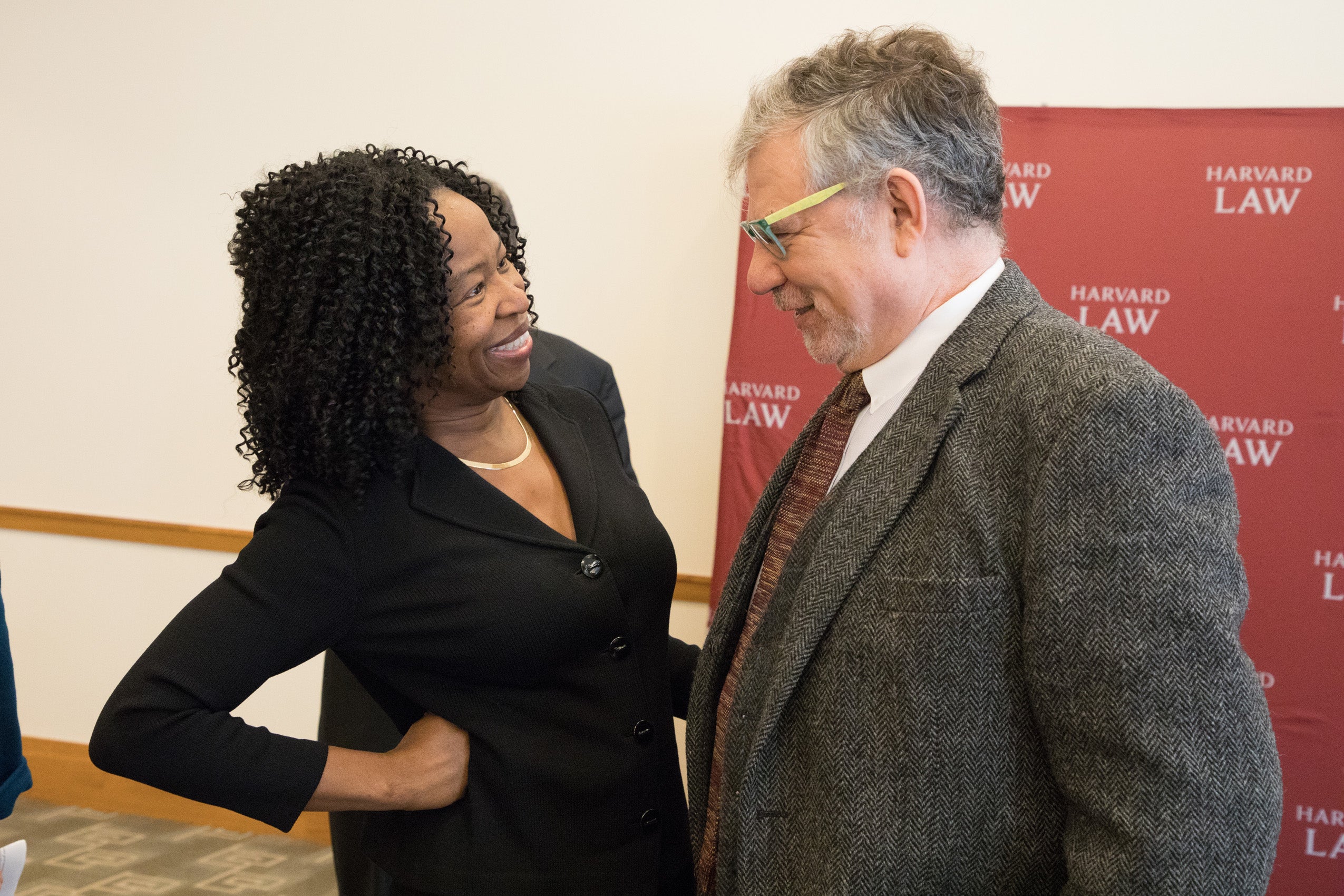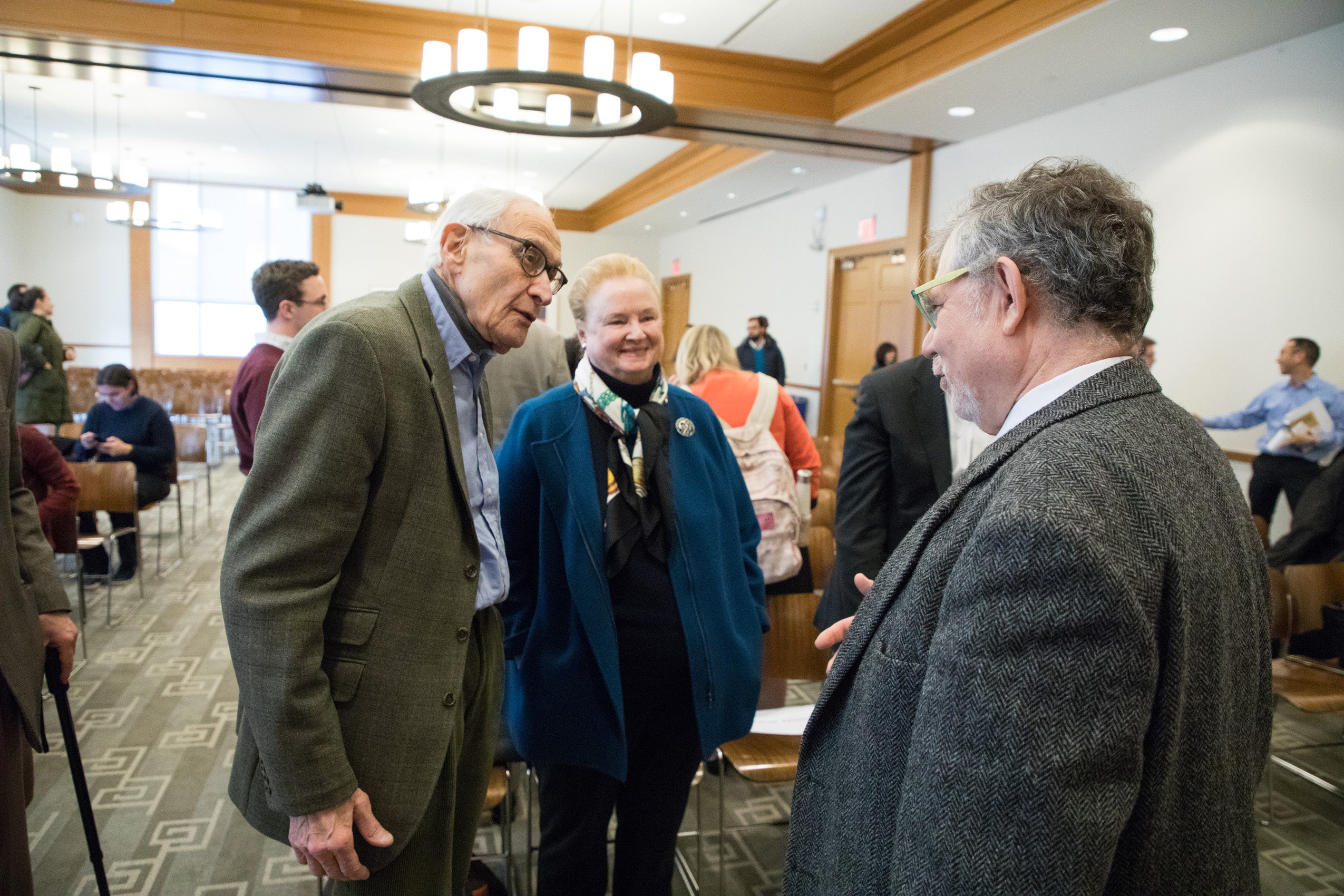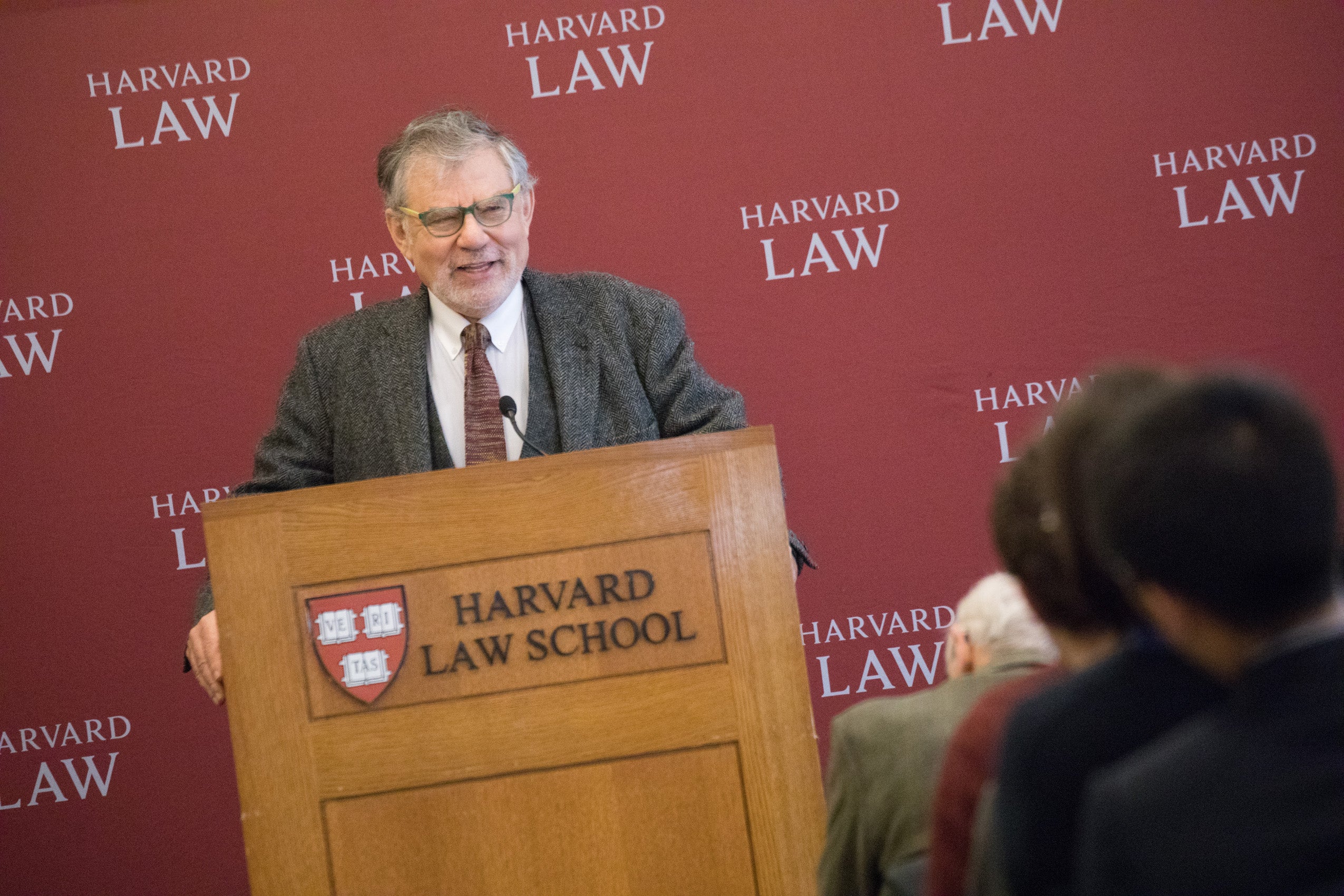Europe’s crisis—the challenges to liberal democracy across the continent, the rise of right-wing nationalist parties, the backlash against the European Union—isn’t a rebellion of economic have-nots, according to former HLS professor Joseph Weiler, who delivered the Herbert W. Vaughan Memorial Lecture, “The European Culture War 2003-2019,” on Feb. 6.
Instead, Weiler argued, Europe’s major conflicts stem from a tension between the EU’s values of democracy, human rights and the rule of law, and nationalists’ values of patriotism, identity, and religion.
“I don’t think there ought to be a tension,” said Weiler, who was a member of the HLS faculty from 1992 to 2001 and is now a law professor at New York University. “I think they’re perfectly compatible.” But a tension between these two sets of values does exist in Europe, Weiler argued, and he asserted that it explains why people vote for right-wing nationalist politicians such as Hungarian Prime Minister Viktor Orban and Marine Le Pen of France’s National Rally party. “I have no patience for Mr. Orban or Marine Le Pen,” Weiler said—but he partially defended the millions of Europeans who support nationalist movements. “I refuse to characterize them either as idiots or fascists,” he said.



Unemployment or the 2008 recession’s aftereffects don’t explain nationalist voters’ support of European parties that challenge liberal democracy’s norms, Weiler argued. Poland, where the Law and Justice Party has threatened the judiciary’s independence, “weathered the economic crisis of 2008 better than any other country in Europe,” Weiler said. Nor, he argued, is right-wing nationalism a revolt of people feeling left behind economically. That can’t explain the rise of right-wing nationalist parties in Austria, Italy, Holland, or Germany.
“The comforting thought that people are only interested in their economic well-being—we have to lay that to rest,” Weiler said.
Instead, a clash of values animates Europe’s crisis, Weiler argued to an audience in Wasserstein Hall.
The European Union constitution, drafted in 2003, is a helpful starting point for understanding the culture war, Weiler argued. Its drafters chose not to include a reference to the “Christian roots of Europe” in the preamble, he said, though European public opinion favored it. “It meant something to them,” Weiler said. “It had to do with a sense of their identity.”
Weiler, born in South Africa and educated in Israel, Britain, the Netherlands and Italy, is a co-drafter of the European Parliament’s Declaration of Human Rights and Freedoms. “I would not want to live in a society which does not robustly protect fundamental human rights,” he said. Yet Weiler also offered a critique of modern Europeans’ tendency to fight political battles with the vocabulary of human rights.
“Human rights are constitutional in nature,” he said, “and if you succeed in the political battle, you take it out of politics.” That can undermine democratic decision-making, according to Weiler. It also “flattens political, social, [and] identarian differences among the states,” Weiler said. “What’s the difference in being a Frenchman, or Italian, or Spaniard or Latvian—because, basically, we all believe in the same values?”
Liberal democracy alone, Weiler argued, doesn’t give meaning to people’s lives. Human rights, “by design, they don’t tell people what to do with their liberty,” he said. But, “because we are born to die, and our lives are short, people want their life to be meaningful. … Religion and nationalism used to answer to that.”
Today, Weiler noted, Europe’s secularization means fewer people attend church on Sundays to hear priests or ministers preach about duty and responsibility. Meanwhile, he said, the European constitution lists citizens’ rights, but no duties. Weiler argued that no politician in Europe—and maybe no U.S. politician either—could deliver John F. Kennedy’s exhortation to “Ask not what your country can do for you; ask what you can do for your country,” because of today’s individual-focused, rights-based political climate. “It’d be suicide,” he said.
Meanwhile, “patriotism is a dirty word in Europe,” Weiler argued, because of fascism’s history. “If people want to stand up and wave a flag, except at a football match, they are disrespected,” Weiler said. “They are called, in Europe, fascists or nationalists—unless, of course, it’s the European Union flag.”
Religion, identity, and patriotism, Weiler argued, are legitimately important to people. “They are not perversions,” he said. “They become perversions when they are exploited by certain politicians.” But that’s partly, he argued, because mainstream European politicians haven’t catered to those values for decades.
Instead, Weiler argued for a republican version of patriotism, in which the state belongs to individuals, rather than the fascist version, in which the individual belongs to the state. “I would claim that patriotism is indispensable for a functioning republican version of democracy,” he said.
During the question-and-answer session, HLS professor Charles Fried told Weiler he agreed with “every syllable” of his lecture, but noted that Weiler’s analysis of right-wing nationalism didn’t seem to apply to the United States.
“The European reality is very different,” Weiler agreed. “I never thought that in the U.S., there was a disrespect for patriotic feelings. That’s definitely the case in Europe. The sense of being left behind economically in the U.S. is more pervasive and justified.”
